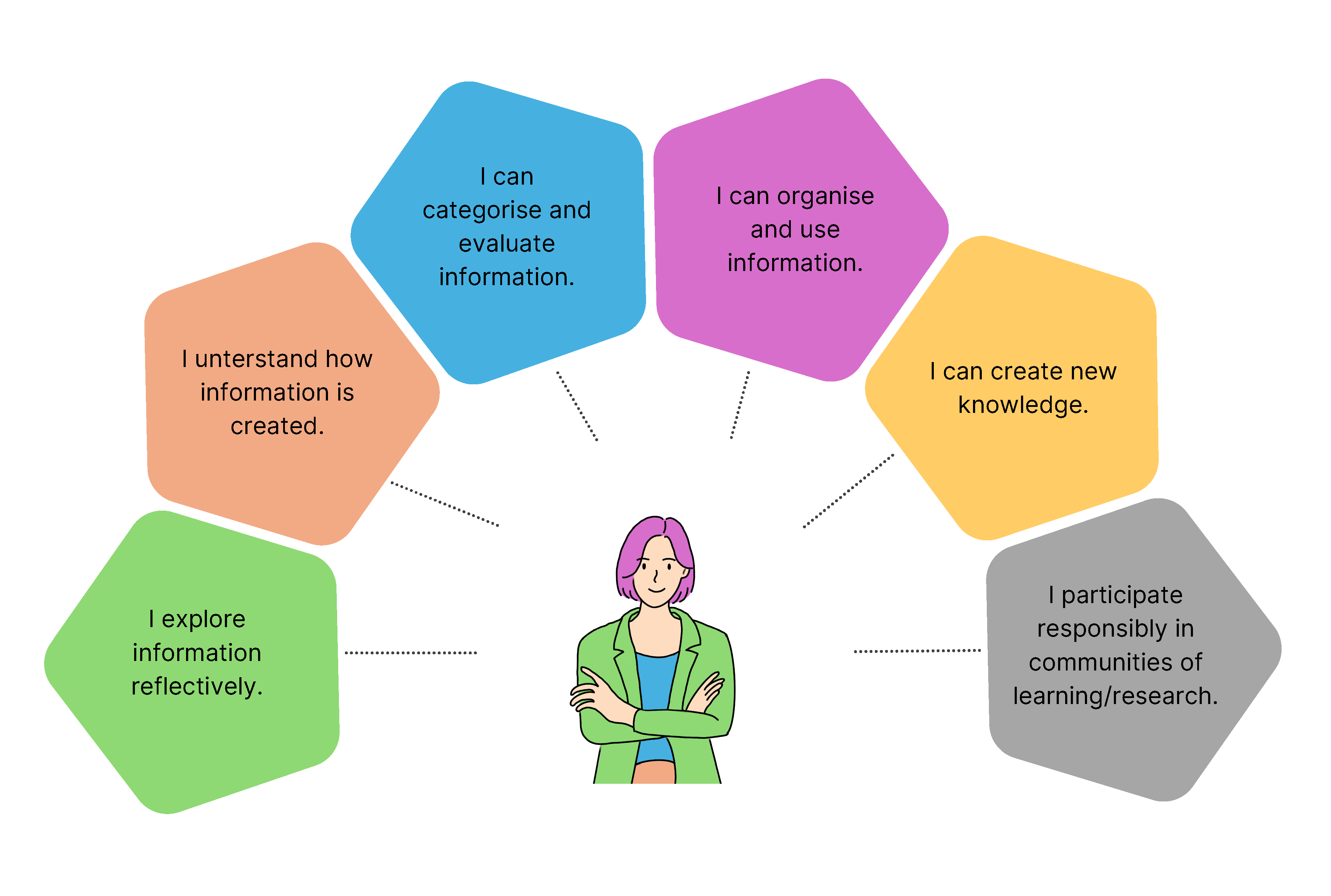Scientific work
Information literacy is essential in the process of scientific work.
The FHNW Library uses the following definition as a guideline for its academic work programmes:
Information literacy is a set of skills and includes
- reflective exploration of information,
- the understanding of how information is created and evaluated,
- the organisation and use of information to create new knowledge and
- responsible participation in communities of learning/research.
Schweizer Standards der Informationskompetenz. (2011). Projekt „Informationskompetenz an Schweizer Hochschulen“. https://www.informationskompetenz.ch/de/standards-ch
Gemeinsame Kommission Informationskompetenz von dbv und VDB, Schoenbeck, O., & Werr, N. (2021). Framework Informationskompetenz in der Hochschulbildung. o-bib. Das offene Bibliotheksjournal / Herausgeber VDB, 8(2), Article 2. https://doi.org/10.5282/o-bib/5674
I not only search for information, but also critically reflect on which of it is relevant to my research question. I choose suitable search strategies and find my way through complex information landscapes.
Support: Research
Term table and research protocol: Template, (Word 81,8 KB)
I can understand the processes by which information is created. I understand scientific methods, the role of institutions and media as well as the influence of power and interests on the production of knowledge.
I can categorise, compare and evaluate information. I distinguish between facts and opinions, assess the credibility of sources and analyse the arguments of others.
I am able to structure and synthesise information and use it for my own purposes. This includes writing summaries, taking notes, citing sources and presenting research findings.
Support: Reference management and citation
I can link existing informations with each other and create new connections. I formulate hypotheses, carry out experiments and am able to write scientific papers with the information I have found.
I recognise the social dimension of information literacy. I work in groups, share my results with others and handle information ethically and responsibly.

